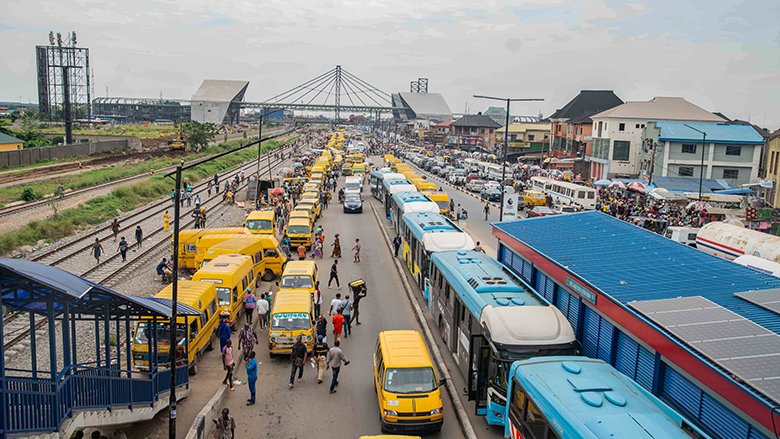Improving Service Delivery
In Benin, the World Bank has helped expand the electricity and water networks to connect more households to the electrical grid and bring clean, piped water into homes. It has also helped improve access to justice to enable underserved communities to report corrupt practices involving public projects, by expanding the network of civil courts beyond the boundaries of major urban centers.
This has been made possible through the recently closed $30 million Public Investment Management and Governance Support Project, which was aimed at strengthening the government’s public investments management capacity, enhance good governance and accountability, and provide result-based financing in the strategic sectors of electricity, water and justice. Access to electricity and water are basic essential services and core development issues. In Benin, only 18% of people living in rural areas, where 57% of the population lives, have access to electricity. And, while 73% of rural residents have access to water, disruptions in supply, particularly during the dry season, have a deleterious impact upon the human health as people are forced to resort to non-potable water sources, such as ponds and creeks.
The project has helped build government capacity on project selection, minimizing long and inefficient procurement processes and implementation delays, reducing cost overruns and bringing more transparency to the public investment process. The ultimate goal is to improve access to and delivery of essential services to the Beninese people and positively impact economic and social development of the country.
A crucial aspect of the project has been the establishment of citizen engagement platforms, to enable citizens to provide feedback about the quality of services provided in the electricity, water, and justice sectors. The feedback has been used by the government to make improvements, as needed. The involvement of civil society organizations (CSOs) and the media in the monitoring process of public investment projects has also been an important feature. Key CSOs and media outlets have received training on public investments management and on monitoring and evaluation.
"The project has demonstrated the potential of civil society in terms of citizen control of public action. We have been equipped to deal with administrative justice,” said Armand Vignon, Benin SCO leader.
Fighting Financial Crime
The Persons with Significant Control (PSC) Register, which became publicly available in May this year, currently covers private firms, limited liability partnerships and state-owned enterprises (SEOs) in which private ownership exceeds the government’s share. It is the first of its kind in Africa.
Disclosure measures such as the PSC Register, also called beneficial ownership registers, are seen as a potential remedy to the illicit flow of proceeds of corruption, including embezzlement of public funds, money laundering and tax fraud. The open availability of firm ownership takes away the anonymity under which perpetrators of financial crimes are able to transfer their unlawfully obtained funds out of the country.
Nigeria fares poorly in most international benchmarks on governance. Public trust in government is at a low ebb and poor governance is a significant challenge to the Government’s ability to restore growth and promote development. Although Nigeria is the largest oil producer in Africa and one of world’s largest exporters of oil, more than one third of Nigerians live below international poverty line. Estimates of annual losses to money-laundering in Nigeria vary but efforts to staunch theft of public money is vital for the country’s development.
Benefits of the PSC Register include enhanced tax compliance by corporate entities leading to an increase in revenue for the country; reduction in money laundering, drug trafficking and terrorism financing; and openness and transparency in the public sector.
As a publicly available resource, the PSC Register is a useful tool for a broad range of users beyond government agencies, including academia, think tanks, journalists, and CSOs. Following the launch of the register, efforts are ongoing to publicize the register’s availability and train relevant stakeholders on its use, including staff of law enforcement agencies.
, via the $125 million Fiscal Governance and Institutions Project for Nigeria, complemented by comprehensive technical expertise, financed by the Open Government Partnership Multi-Donor Trust Fund.
The Bank’s support also includes working with the government of Nigeria to develop or improve the digital and regulatory infrastructure that underpins the PSC Register. This includes technical advice on PSC Regulation, providing a framework and procedure for obtaining relevant information on persons with significant control under the Companies and Allied Matters Act of 2020, which makes it mandatory for firms to provide company ownership information.
The work in Benin and Nigeria are just two examples of the World Bank’s support to client countries in Western and Central Africa to combat corruption. The Bank is working to build the capacity of financial management, as well as that of accountability and oversight. Importantly, many Bank projects also put in place systems and processes to hear back from citizens directly on their satisfaction or difficulties with accessing public-provided services. The simultaneous support for stronger government institutions and greater attention to what citizens have to say, crowds out the opportunities for corruption.

